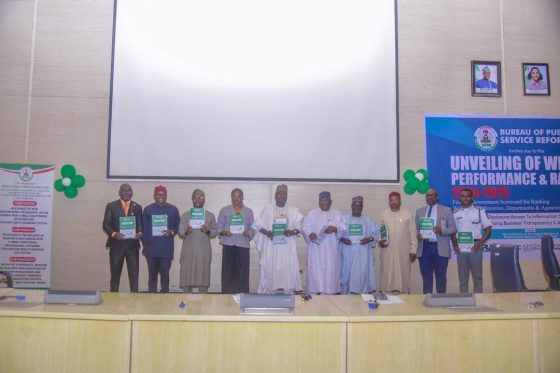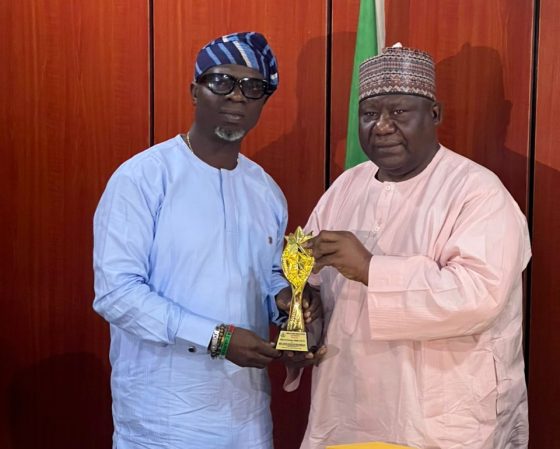Newsflash
C/River Partners BPSR, W/Bank on Governance Reforms, Development Agenda
|
BPSR, NIPR COLLABORATE TO BUILD COMMUNICATION CAPACITY OF CEOS OF GOVERNMENT PARASTATALS
|
BPSR DG Reaffirms Commitment to Strengthening Fiscal Responsibility Code as FRC Calls for Swift Validation
|
BPSR DG, Mr. Dasuki Arabi, Receives Fellowship Award from Accredited Management Trainers’ Association
|
Post-Retirement Mortality: BPSR, PenCom Express Concern Over Rising Deaths Among Civil Servants
|
Current Reforms
- Home
- Current Reforms
Press Release
Coordination, Management and Integration of the Reform Programme
The National Council on Reforms has the President of Nigeria as Chairman, and it is the apex of the institutional machinery for reform implementation and coordination. The Steering Committee on Reforms, among others, is saddled with the functions of providing guidance and technical leadership in reform design and implementation; initiating action on reforms at different levels, and; ensuring the monitoring and evaluation of reform implementation for impact and effectiveness.
Prosecuting Corrupt Practices
These institutions were the Economic and Financial Crimes Commission (EFCC) and the, Independent Corrupt Practices and other Related Offenses Commission (ICPC).
These institutions have been combating cases of corrupt practices such as Internet fraud and corruption in public offices.
Public Expenditure Management
In order to improve transparency at all levels of government, but particularly at the States and Local Government levels, a monthly publication of Federal, States and Local Government shares of revenue from the country’s Federation account was introduced in 2004.
The publication provides details of revenue allocation to all the States of the Federation and the Federal Capital Territory (FCT) as well as the774 Local Governments.
The publication has increased transparency, particularly of sub-national finances, and opened up dialogue on public revenues and expenditures of all tiers of government.
Electronic (E) Payment
The overall aim is geared towards instilling transparency and ensure that payments effected by government to contractors and other business transactions are easily tracked electronically without any difficulties.
It is also to reduce to the barest minimum, physical contact between accounts officials and contractors with regard to payments, thereby minimizing unethical behaviour associated with physical payments.
Public Procurement
The government also publishes a public tender journal periodically as a means of reducing patronage in the award of contracts. In addition, certification of completed government projects is also required before final payments are made.
The procurement reform, to a great extent has brought about some measure of sanity, transparency and competition in contract award. As a means of strengthening public procurement system in the country, Government took steps to institutionalize transparency and competitive bidding in tendering contract award and payment through Public Procurement Act and the establishment of the Bureau of Public Procurement (BPP).
The BPP, among others, is saddled with the responsibility of formulating the general policies and guidelines relating to public sector procurement for the approval of government.

Federal Secretariat Complex, New Extension, Plot 04, Phase II, Block D, 3rd Floor, Shehu Shagari Way,
GARKI, ABUJA, NIGERIA.
Newsletter
Subscribe to the BPSR newsletter to receive the latest updates on public sector reforms, research publications, events, and policy insights.


